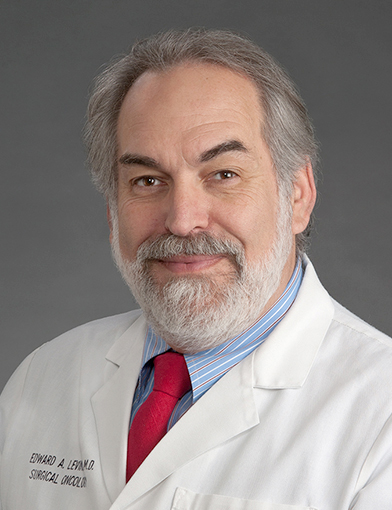Tumor Tissue and Pathology Shared Resource (TTPSR) has been a shared resource (SR) since 1994. It includes the Tissue Processing Lab (TPL), the Human Pathology Lab (HPL), the Comparative Pathology Lab (CPL) and the Organoid Processing Lab (OPL). The Atrium Health Biospecimen Repository (AH BSR) was set up in 2014 as an enterprise-wide resource to provide specimen collection, processing, storage and shipping for specimen banking and clinical trials and for clinical genomics testing.
The mission of the TTPSR is to facilitate clinical and translational cancer research by:
- Collecting and supplying high-quality, well-characterized human and animal tissues (neoplastic and normal).
- Providing various pathology services to AHWFBCCC investigators.
- Providing enterprise-wide clinical trial specimen support, banking and clinical tumor profiling.
Our vision is to enhance the capabilities of our dedicated researchers, providing superior capabilities in clinical and translational research, leveraging specimens for molecular prognostication and precision medicine.
The HPL provides quality control of samples and clinical pathology expertise to investigators. The CPL provides samples and pathology expertise for preclinical translational animal models, from rodent to non-human primate.
The OPL creates 3D patient-specific tumor organoids and applies them translationally, with the goal of informing personalized cancer treatments as well as the research and development of new therapies.
Atrium Health Wake Forest Baptist Comprehensive Cancer Center (AHWFBCCC) BSR and TTPSR have harmonized processes for specimen banking.
Focus Areas
- Specimen banking – collection, processing, storage, shipping and distribution; available at all sites.
- Histology, histotech, assay development, diagnostic and experimental pathology services – human and non-human specimens.
- Organoid development and screening.
- Clinical trial specimen collection, processing and shipping.
- Clinical Genomic Testing – single point of contact and standardized workflow.
2. French MJ, Wuerker R, Dugan G, Olson JD, Sanders BR, Tooze JA, et al. Long-Term Immunological Consequences of Radiation Exposure in a Diverse Cohort of Rhesus Macaques. Int J Radiat Oncol Biol Phys 2023;115:945-56
3. Eisner JR, Mayhew GM, Davison JM, Beebe KD, Shibata Y, Guo Y, et al. Association of Antifolate Response Signature Status and Clinical Activity of Pemetrexed-Platinum Chemotherapy in Non-Small Cell Lung Cancer - The Piedmont Study. Clin Cancer Res 2023
4. Zhao D, Wu K, Sharma S, Xing F, Wu SY, Tyagi A, et al. Exosomal miR-1304-3p promotes breast cancer progression in African Americans by activating cancer-associated adipocytes. Nat Commun 2022;13:7734
5. Tyagi A, Wu SY, Sharma S, Wu K, Zhao D, Deshpande R, et al. Exosomal miR-4466 from nicotine-activated neutrophils promotes tumor cell stemness and metabolism in lung cancer metastasis. Oncogene 2022;41:3079-92
6. Sills WS, Tooze JA, Olson JD, Caudell DL, Dugan GO, Johnson BJ, et al. Total-Body Irradiation Is Associated With Increased Incidence of Mesenchymal Neoplasia in a Radiation Late Effects Cohort of Rhesus Macaques (Macaca mulatta). Int J Radiat Oncol Biol Phys 2022;113:661-74
7. Liu Y, Wang L, Song Q, Ali M, Crowe WN, Kucera GL, et al. Intrapleural nano-immunotherapy promotes innate and adaptive immune responses to enhance anti-PD-L1 therapy for malignant pleural effusion. Nat Nanotechnol 2022;17:206-16
8. Forsythe SD, Erali RA, Laney P, Sivakumar H, Li W, Skardal A, et al. Application of immune enhanced organoids in modeling personalized Merkel cell carcinoma research. Sci Rep 2022;12:13865
9. Farhangfar CJ, Scarola GT, Morris VA, Farhangfar F, Dumas K, Symanowski J, et al. Impact of a Clinical Genomics Program on Trial Accrual for Targeted Treatments: Practical Approach Overcoming Barriers to Accrual for Underserved Patients. JCO Clin Cancer Inform 2022;6:e2200011
10. Eisner JR, Beebe KD, Mayhew GM, Shibata Y, Guo Y, Farhangfar C, et al. Distinct Predictive Immunogenomic Profiles of Response to Immune Checkpoint Inhibitors and IL2: A Real-world Evidence Study of Patients with Advanced Renal Cancer. Cancer Res Commun 2022;2:894-903
11. Soto-Pantoja DR, Gaber M, Arnone AA, Bronson SM, Cruz-Diaz N, Wilson AS, et al. Diet Alters Entero-Mammary Signaling to Regulate the Breast Microbiome and Tumorigenesis. Cancer Res 2021;81:3890-904
12. Forsythe SD, Erali RA, Sasikumar S, Laney P, Shelkey E, D'Agostino R, Jr., et al. Organoid Platform in Preclinical Investigation of Personalized Immunotherapy Efficacy in Appendiceal Cancer: Feasibility Study. Clin Cancer Res 2021;27:5141-50
13. Dominijanni AJ, Devarasetty M, Forsythe SD, Votanopoulos KI, Soker S. Cell Viability Assays in Three-Dimensional Hydrogels: A Comparative Study of Accuracy. Tissue Eng Part C Methods 2021;27:401-10
14. Votanopoulos KI, Forsythe S, Sivakumar H, Mazzocchi A, Aleman J, Miller L, et al. Model of Patient-Specific Immune-Enhanced Organoids for Immunotherapy Screening: Feasibility Study. Ann Surg Oncol 2020;27:1956-67
15. Su J, Jin G, Votanopoulos KI, Craddock L, Shen P, Chou JW, et al. Prognostic Molecular Classification of Appendiceal Mucinous Neoplasms Treated with Cytoreductive Surgery and Hyperthermic Intraperitoneal Chemotherapy. Ann Surg Oncol 2020;27:1439-47
16. Maloney E, Clark C, Sivakumar H, Yoo K, Aleman J, Rajan SAP, et al. Immersion Bioprinting of Tumor Organoids in Multi-Well Plates for Increasing Chemotherapy Screening Throughput. Micromachines (Basel) 2020;11
17. Gmeiner WH, Miller LD, Chou JW, Dominijanni A, Mutkus L, Marini F, et al. Dysregulated Pyrimidine Biosynthesis Contributes to 5-FU Resistance in SCLC Patient-Derived Organoids but Response to a Novel Polymeric Fluoropyrimidine, CF10. Cancers (Basel) 2020;12
18. Forsythe SD, Sasikumar S, Moaven O, Sivakumar H, Shen P, Levine EA, et al. Personalized Identification of Optimal HIPEC Perfusion Protocol in Patient-Derived Tumor Organoid Platform. Ann Surg Oncol 2020;27:4950-60
19. Forsythe S, Mehta N, Devarasetty M, Sivakumar H, Gmeiner W, Soker S, et al. Development of a Colorectal Cancer 3D Micro-tumor Construct Platform From Cell Lines and Patient Tumor Biospecimens for Standard-of-Care and Experimental Drug Screening. Ann Biomed Eng 2020;48:940-52




